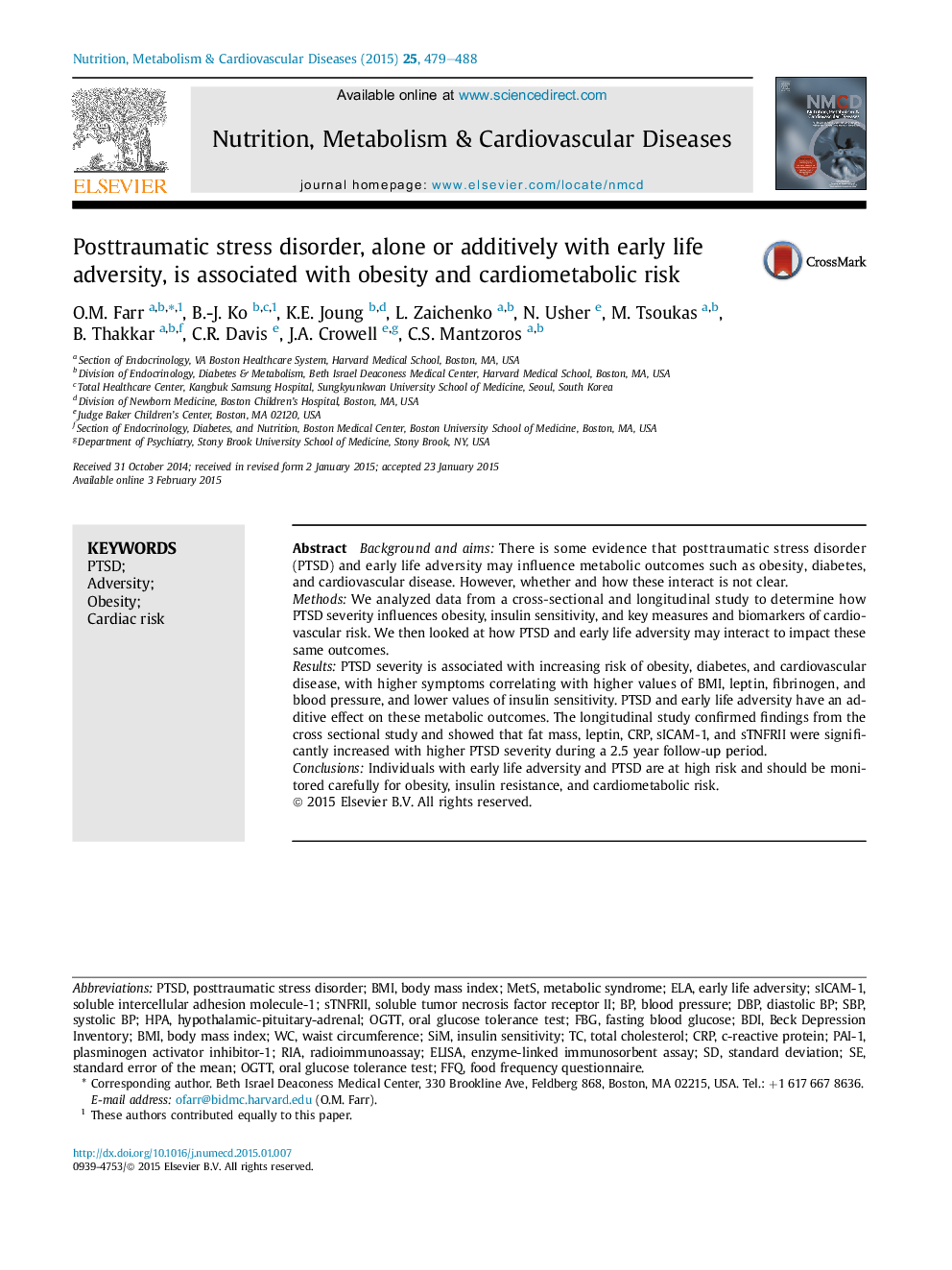| Article ID | Journal | Published Year | Pages | File Type |
|---|---|---|---|---|
| 3001816 | Nutrition, Metabolism and Cardiovascular Diseases | 2015 | 10 Pages |
•PTSD is correlated with obesity/BMI.•PTSD is associated with a number of cardiovascular disease and diabetes risk factors in a large sample.•PTSD and early life adversity act in an additive manner to increase cardiometabolic risk.
Background and aimsThere is some evidence that posttraumatic stress disorder (PTSD) and early life adversity may influence metabolic outcomes such as obesity, diabetes, and cardiovascular disease. However, whether and how these interact is not clear.MethodsWe analyzed data from a cross-sectional and longitudinal study to determine how PTSD severity influences obesity, insulin sensitivity, and key measures and biomarkers of cardiovascular risk. We then looked at how PTSD and early life adversity may interact to impact these same outcomes.ResultsPTSD severity is associated with increasing risk of obesity, diabetes, and cardiovascular disease, with higher symptoms correlating with higher values of BMI, leptin, fibrinogen, and blood pressure, and lower values of insulin sensitivity. PTSD and early life adversity have an additive effect on these metabolic outcomes. The longitudinal study confirmed findings from the cross sectional study and showed that fat mass, leptin, CRP, sICAM-1, and sTNFRII were significantly increased with higher PTSD severity during a 2.5 year follow-up period.ConclusionsIndividuals with early life adversity and PTSD are at high risk and should be monitored carefully for obesity, insulin resistance, and cardiometabolic risk.
